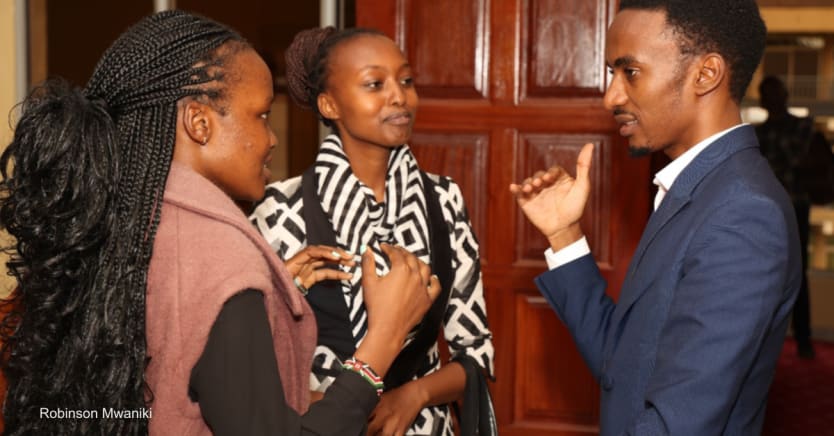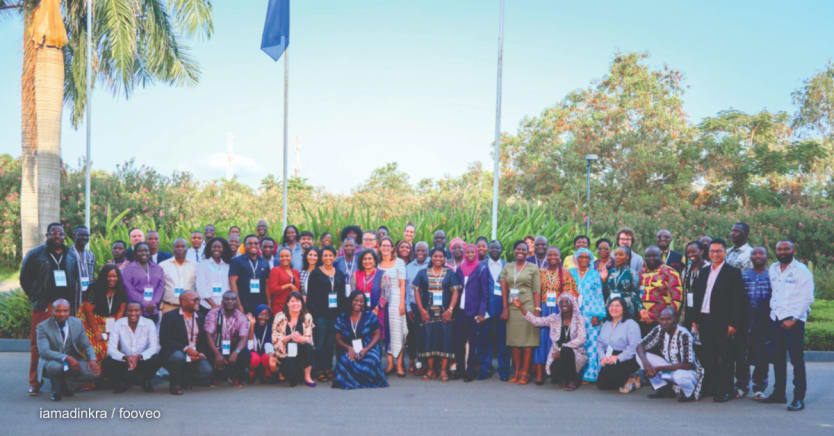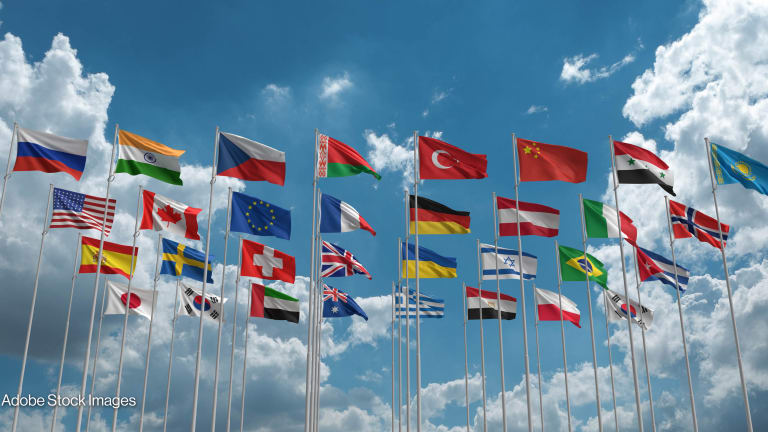
The intersection of national political transitions and global multilateralism creates a pivotal moment for assessing accountability and progress. In 2024, more than 70 countries — representing half of the world’s population — conducted elections. In addition to being consequential for the state of democracy around the world, election outcomes and the resulting changes have profound implications for development progress and the continuity of programs and policies.
Amid the global election season, 2024 also marked a pivotal moment for multilateralism. The adoption of the Pact for the Future at the United Nations Summit of the Future renewed focus on multilateralism’s role in tackling global challenges and achieving the Sustainable Development Goals. Emphasizing inclusivity, equity, and sustainability, the pact calls on governments and civil society to ensure these commitments are effectively delivered for people and the planet.
Similarly, the 30th anniversary of the International Conference on Population and Development, or ICPD+30, served as a powerful reminder of the transformative potential of multilateral agreements. Thirty years ago, the ICPD conference in Cairo laid the groundwork for recognizing sexual and reproductive health and rights as fundamental human rights, and core to achieving equitable development.
The effectiveness of multilateralism hinges upon its ability to enforce decisions and compel government action, a common criticism due to its often-limited authority. Despite these challenges, multilateralism remains a high-value investment for tackling global issues by leveraging collective action and shared resources. Its legitimacy and success rely on robust government participation, adequate funding, and the critical role of civil society, whose growing recognition as a key partner in global initiatives is an encouraging step forward.
From the World Health Organization and Gavi, the Vaccine Alliance’s civil society engagement mechanisms to the Global Financing Facility’s investment in civil society to enable responsive and accountable country investment cases for sexual, reproductive, maternal, newborn, child and adolescent health and nutrition, the roles of civil society have evolved beyond those of being a watchful eye. Civil society serves as an essential partner to inform policy and program design and accelerate and protect gains, but the rules of engagement with civil society must be strengthened given the evolution and necessity of our roles. The contributions and opportunities include:
1. Delivering on ambitions and investments
With increased support for pooled mechanisms like the UNFPA Supplies Partnership and shared commitment platforms such as FP2030 to advance family planning and the Spotlight Initiative to end violence against women and girls, the pressure is mounting to meet the ambitions envisioned by fund stewards and commitment-makers alike.
Through our leadership in the GFF’s civil society mechanism and engagement in the 700+ member Civil Society Coordinating Group, we have seen that including civil society in programming improves monitoring and ensures progress remains on track. Civil society is most effective in its accountability role when independent, engaged throughout the commitment lifecycle, and supported with sustained, multiyear, flexible funding and partnerships.
In just one year of GFF support, 50 civil society and youth-led organizations — including PAI and Health NGOs Network, or HENNET — delivered 100 meaningful policy achievements in over 25 countries to advance sexual, reproductive and maternal, newborn, and child health priorities. Moving forward, the challenge lies in ensuring these policy wins translate into tangible improvements in health and well-being for women, children, and adolescents.

2. Ensuring the impact of innovation
Building trust and demand for life-changing services requires inclusive, responsive community-centered approaches that prioritize accessibility and cultural appropriateness. Civil society plays a vital role in convening stakeholders, translating evidence, and aligning local preferences with program design to ensure innovations reflect diverse needs and foster ownership.
The rollout of COVID-19 vaccines highlighted the critical importance of sustained civil society engagement. Challenges such as misinformation and mistrust might have been mitigated had civil society been engaged as essential partners from the outset, rather than after issues had emerged.
Proactive collaboration with civil society builds trust, improves communication, and enhances success. At the 2024 Devex summit at the U.N. General Assembly, PAI and the United Nations Population Fund emphasized that without civil society’s engagement, even the most promising sexual and reproductive health and rights innovations risk being underutilized, undermined, or overlooked.
3. Protecting progress
Civil society plays a vital role in protecting global health progress, particularly during times of political transition. Elections and changes in leadership not only can disrupt program continuity, but also call previous commitments into question. Political shifts often bring policy reversals, delays, or changes, and we see this in our own countries such as the United States’ reinstatement or recission of the global gag rule and changes to financial legislation in Kenya. These dynamics make the role of civil society even more essential as a constant and consistent presence to advance policy implementation and a voice that calls on governments to remain aligned with the needs of communities and global development promises that were made.
The global election season has introduced significant uncertainty, with donor countries rolling back or threatening to reduce funding for multilateral mechanisms and global health priorities. This instability is compounded by governments transitioning out of office — many of which received direct funding from major institutional donors or multilateral platforms — and the rise of an ambitious anti-rights movement, leaving progress hanging precariously in the balance. As civic space faces increasing threats, major donors and multilateral institutions must champion the inclusion of civil society as a steadfast force for accountability and advocacy, to safeguard progress and prevent further setbacks.
Looking ahead
Strengthening partnerships among multilateral institutions, donors, governments, and civil society is essential to navigate the uncertainties posed by political transitions, shifting policy priorities, climate and humanitarian crises, and funding challenges. Civil society’s unique role in fostering accountability, amplifying community voices, and connecting global commitments to local realities is indispensable for achieving the SDGs. As the 2030 deadline approaches, investing in inclusive decision-making and robust independent accountability mechanisms will advance progress and safeguard our future. With so much at stake, civil society cannot be left on the sidelines.









